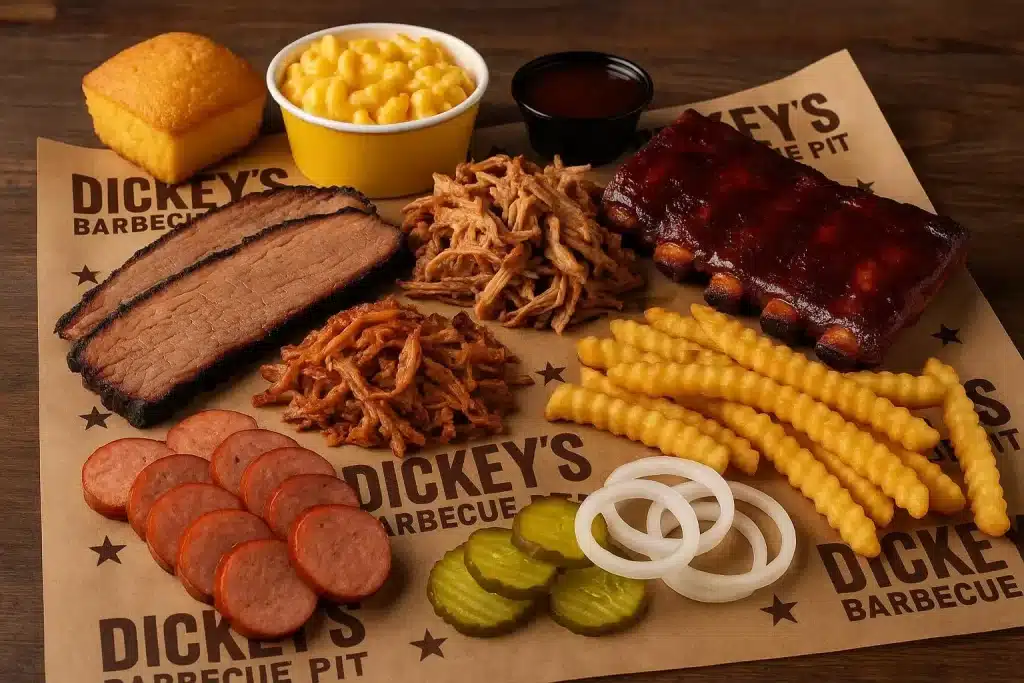For many entrepreneurs entering the restaurant business, barbecue represents a classic and dependable category. With over eight decades of history, Dickey’s Barbecue Pit stands out as one of the most established and recognizable names in the industry. But the real question is: does owning a Dickey’s franchise make for a worthwhile investment?
As with any business venture, potential owners should look at both the opportunities and the obstacles. While online discussions include stories of frustration, there are also consistent reports of profitability, long-term owner success, and the security of a well-tested system. Below, we take a deeper look at the history, strengths, weaknesses, and expert opinions surrounding this iconic brand.
A Longstanding Brand with a Structured System
Dickey’s has expanded far beyond its humble Dallas beginnings, growing into a network of more than 800 restaurants across several concepts. Out of these, 375 locations operate under the Dickey’s Barbecue Pit name, managed by 216 franchisees. This scale reflects not only demand for barbecue but also confidence in the brand’s framework.
The franchise model is built around:
- Consistency in flavor and quality across all units
- An exclusive supply chain that ensures safety and reliability
- National purchasing power that gives operators access to competitive pricing
- Operational playbooks that simplify restaurant management and reduce risks
For independent restaurateurs, replicating this infrastructure would be a significant challenge. However, while the system provides strong support, strict adherence is required—owners must follow the rules to maintain brand reputation and protect their bottom line.
Dickey’s Complaints: A Look at the Concerns
Like all franchises, Dickey’s has faced its share of criticism. Some of the common complaints trace back to:
- Rising labor and food expenses
- Broader economic challenges that affect customer spending
- Franchisees failing to stick to the established system
- Unrealistic expectations from owners who underestimate the workload
There are examples where one franchisee thrives in a location while another fails under similar conditions, often due to differences in execution. This highlights how much local involvement and commitment matter.
It’s also worth noting that many concerns echo industry-wide issues. The restaurant sector has faced supply chain disruptions, rising costs, and inflationary pressures in recent years—challenges not unique to Dickey’s.
Key Advantages of a Dickey’s Franchise
Despite the obstacles, Dickey’s continues to attract entrepreneurs for several reasons:
- Brand Power – As the largest barbecue franchise in the U.S., Dickey’s has widespread recognition that draws customers quickly.
- Operational Support – Franchisees gain access to proven processes, marketing resources, and continuous assistance.
- Growth Potential – The system is designed for scalability, and many owners go on to operate multiple units.
- Cost Advantages – The proprietary supply chain allows franchisees to benefit from reduced prices and quality assurance.
- Adaptability – During the pandemic, Dickey’s successfully shifted to digital ordering and diversified revenue streams, proving its ability to adjust under pressure.
These factors explain why many operators stay with the brand long term and why resales often remain profitable.
Challenges to Keep in Mind
Potential franchisees should also carefully consider the downsides:
- Strict Compliance – Franchise rules are non-negotiable, which may feel restrictive for owners seeking more independence.
- Hands-On Commitment – Dickey’s is not suited to absentee ownership. Owners who aren’t involved daily are less likely to succeed.
- Economic Pressures – Rising costs of labor and ingredients, along with fluctuating consumer demand, can cut into profits.
- Reputation Risks – Online negativity or isolated franchise struggles can create a perception problem, even if most owners perform well.
These challenges don’t mean the franchise model is flawed—they highlight the importance of effort, consistency, and realistic expectations.
Who Succeeds with Dickey’s?
The decision to invest ultimately depends on the entrepreneur. Dickey’s tends to be a good fit for:
- Owners who are committed to following an established system
- Entrepreneurs looking for the strength of a recognized brand instead of starting from scratch
- Hands-on operators who engage directly in running their restaurants
- Business owners who value community involvement and see local engagement as a driver of revenue
On the other hand, those seeking a passive, low-involvement business may find Dickey’s less appealing.
The brand also continues to evolve, expanding digital strategies, growing customer counts, and offering new franchise opportunities. With more than 100 success stories shared by franchisees, there is evidence that the system can be highly rewarding when managed properly.
Final Verdict: Balancing Strengths and Challenges
Every franchise has advantages and hurdles, and Dickey’s is no different. Its strengths lie in brand recognition, tested systems, and strong support. Its challenges revolve around compliance requirements, owner involvement, and external market forces.
When reviewing Dickey’s complaints, it’s important to separate systemic issues from execution failures. The evidence suggests that franchisees who actively engage, follow the playbook, and reinvest in their business tend to achieve sustained success.
Bottom line: For entrepreneurs ready to commit time, effort, and leadership, Dickey’s offers a solid opportunity with significant potential for profitability and long-term growth.
